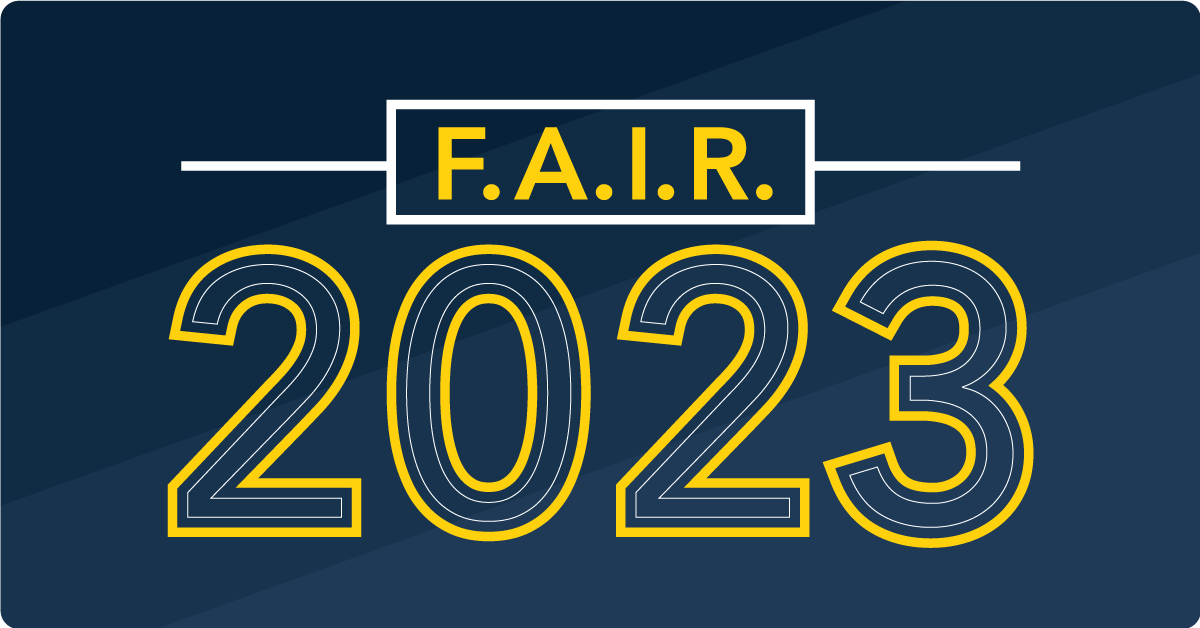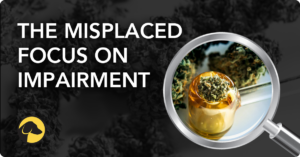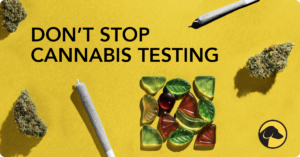
How to Make Workplace Cannabis Testing Fair for All
“That’s not fair.”
As a parent, the phrase “that’s not fair” is all too familiar – but what does it have to do with cannabis testing?
The concept of fairness often starts when children are still in diapers and picks up speed during the tempestuous teenage years. Parents’ responses also change as children grow, and situations often become more complicated. However, protests challenging fairness in the home are expected and, in most cases, easy to remediate.
As an employer, though, the concept – and execution – of fairness is far more complex and, in some cases, far more expensive, especially when it comes to workplace cannabis testing.
THE IMPORTANCE OF BEING FAIR
Well-balanced employer policies strive to be fair, and oftentimes, equitable. The foundations of standard hiring procedures, disciplinary processes, and benefits are supposed to be rooted in fairness and non-discriminatory practices. These standardized and fair policies are what help protect an employer against claims of bias. Applying these practices in the workplace is, ultimately, a risk mitigation strategy for an employer.
When we examine workplace drug testing policies, unbiased measures have historically been implemented as a way of protecting both employees and employers. However, evolving cannabis legalization and the continuing use of legacy drug testing technologies present new challenges for employers.
THE IMPACT OF CANNABIS LEGALIZATION
Cannabis legalization began in 1996 when California legalized medical marijuana. Prior to this initial law change, employers typically screened for a panel of drugs that included THC. The presence of THC in a candidate or employee’s sample meant illegal use of a Schedule I federal drug in violation of company policy. Under these zero-tolerance programs, positive tests were grounds for exclusion from hiring or termination from existing employment. For more than 25 years, this approach worked based on two core principles:
- Marijuana use would not be tolerated since it remained a Schedule I federal drug; and,
- Medical marijuana cards allowing for medicinal use would not be considered in the same way that an FDA-approved prescription drug would be in treating an illness.
However, cannabis legalization challenged this policy. In 2012, Colorado and Washington expanded use to include adult, or recreational, use in their states. These states, and the many that have followed in the intervening years, challenged the notion of fairness of access to, and use of, cannabis by adults, and ultimately, removed many of those protections that employers and employees had come to rely on.
These new laws, especially those allowing for adult use, created an issue for employers that, until now, simply did not exist. Before legalization, workplace drug testing provided an objective tool for employers to identify if an employee was illegally using a drug. But the traditional tests these programs relied on – oral fluid, urine, and hair – weren’t able to indicate workday use because they have windows of detection that may extend days, weeks, or months after use. In other words, in today’s era of cannabis legalization, some employees may be unfairly penalized for failing a THC test, even though they didn’t use marijuana surrounding the workday. And once again, employees and employers alike began to voice, “That’s not fair.”
A FAIR CANNABIS TESTING POLICY
At that point, many employers using oral fluid, urine, or hair began to question their zero-tolerance testing policies. How can a test that looks back for days, weeks, and even months be fairly applied? Employees, candidates, and lawmakers questioned – is workplace cannabis testing really still fair?
The simple answer is yes, it is.
Workplace drug testing has more than 40 years of data proving it to be an effective risk mitigation, safety, and cost containment strategy. Workplace drug testing deters use and prevents workplace incidents before they occur1 – which is the ultimate goal. Considering more than 185 million U.S. adults have access to legal cannabis, workplace cannabis testing is critically important.2
But workplace cannabis testing doesn’t measure impairment. In fact, no drug test measures impairment, and any so-called ‘impairment standard’ is an unproven hypothesis. Faye Caldwell, founding partner at Caldwell Everson, a leading employment law firm based in Houston, Texas, spoke about this challenge earlier this year at one of the largest employee screening conferences in the country.
“Cannabis impairment is a legally complex topic, and I believe we are decades away from establishing a standard definition on a national basis.”
– Faye Caldwell, Employment Attorney
A fair drug testing policy works best when it can be equally enforced across all positions in a workforce and, ultimately, when it helps to provide the employer with protection against risks. And in the era of cannabis legalization, workplace cannabis testing requires a new technology that can objectively measure workday use and apply it fairly in workplace policies.
THE VALUE OF BREATH TESTING
Specifically, testing for and isolating recent use gives companies the ability to retain employees while continuing drug testing programs that may help prevent costly accidents, promote safety, and improve job performance.
The HOUND® CANNABIS BREATHALYZER helps employers retain employees whose historical cannabis use does not violate their company policy, restricting use immediately before or during the workday. Limiting positive results to only those employees who used within a few hours of the breath test communicates a focus on equity and fairness to employees who are at a premium in today’s tight labor market.
Adopting this new technology will allow objective workplace cannabis testing to be fairly and equally applied to all employees without relying on anything that subjectively measures impairment. And that is something everyone – employers, customers, and vendors – can agree is a good thing.
Footnotes

July 13, 2023
By NINA M. FRENCH
Share












